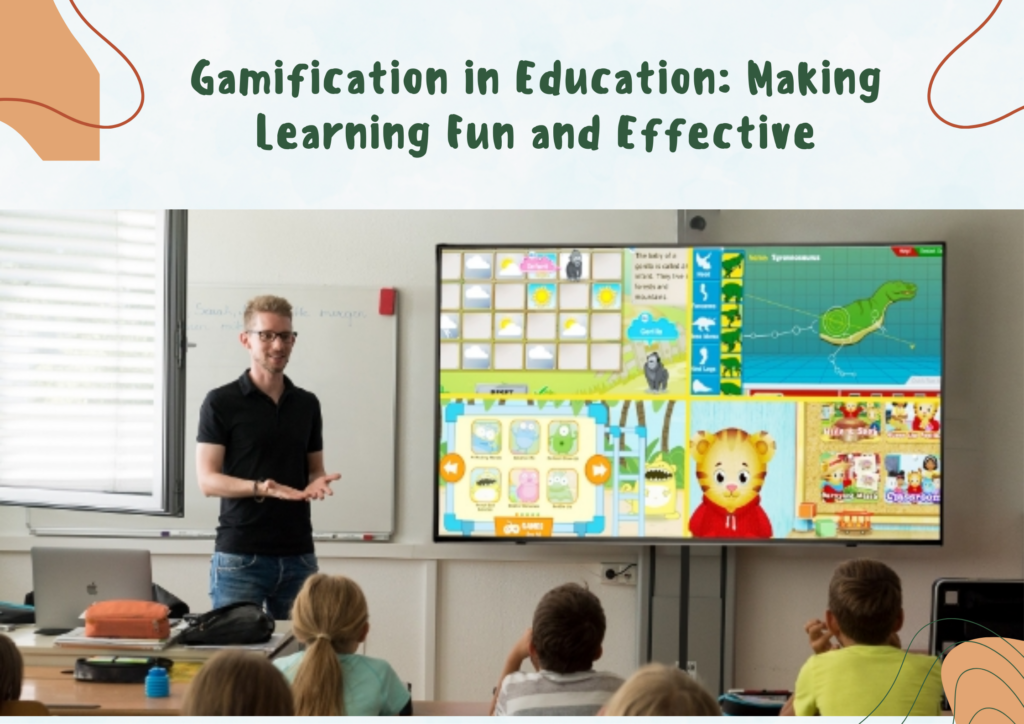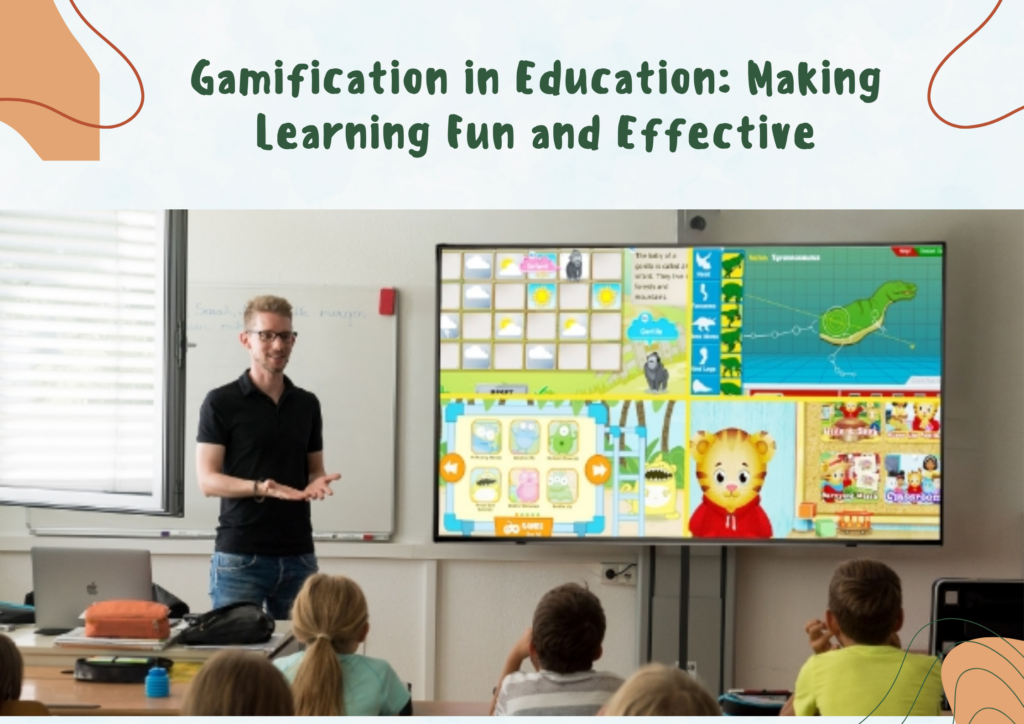In recent years, Dubai has become a global leader in educational innovation. Schools here are not only focusing on traditional academic excellence but are embracing modern teaching strategies to make learning more engaging, effective, and enjoyable. One of the most powerful trends in this transformation is gamification the use of game-like elements in educational settings. By turning lessons into interactive and motivating experiences, gamification has begun to reshape the way students in Dubai schools absorb knowledge, develop skills, and build a lifelong love for learning.
Understanding Gamification in Education
Gamification in education is more than just adding games to the classroom. It involves incorporating elements like points, levels, leaderboards, challenges, and rewards into the learning process. These elements tap into human motivation and encourage students to participate actively in their education.
For example, a math lesson can be transformed into a quest where students earn points for completing problems, unlock achievements for mastering concepts, and collaborate with classmates to achieve goals. This approach makes learning feel less like a chore and more like an exciting adventure.
Boosting Engagement and Motivation
One of the most significant impacts of gamification in Dubai schools is the increase in student engagement. Traditional classrooms often struggle with students losing focus, especially in subjects perceived as difficult or monotonous. Gamified learning flips this dynamic by making participation enjoyable and rewarding.
When students see immediate feedback through points or badges, they feel a sense of accomplishment. This instant gratification reinforces positive behavior and motivates them to continue learning. Dubai educators have reported that gamification not only keeps students attentive but also fosters a sense of curiosity and determination.

Enhancing Knowledge Retention
Gamification doesn’t just make learning fun it also improves knowledge retention. Studies and classroom experiences show that students are more likely to remember concepts when they interact with them in a playful and meaningful way.
For instance, when history lessons are transformed into role-playing games where students become historical figures and make decisions based on past events, the learning becomes immersive. Students are not just memorizing dates and facts they are understanding the context, consequences, and significance of historical events. In Dubai schools, this method has proven effective in both public and private institutions, helping students retain information longer and apply it in practical contexts.
Supporting Personalized Learning
Every student learns differently, and gamification allows teachers to cater to individual needs. By offering multiple pathways and levels within a gamified lesson, students can progress at their own pace. Advanced learners can tackle complex challenges while those needing extra support can start with foundational tasks without feeling left behind.
Dubai schools are increasingly integrating adaptive learning platforms that use gamification to provide personalized learning experiences. These platforms track performance, identify strengths and weaknesses, and adjust the content to ensure every student stays challenged yet confident.
Developing Critical Thinking and Problem-Solving Skills
Gamified learning encourages students to think critically and solve problems creatively. Many games require strategy, decision-making, and collaboration skills that are essential for success in the modern world.
In Dubai classrooms, teachers have designed gamified activities that simulate real-life situations. For example, science experiments may be turned into challenges where students must design solutions for environmental issues, or business studies lessons can involve simulated companies where students make decisions and see the consequences. These experiences nurture analytical thinking, creativity, and teamwork, preparing students for future careers.
Fostering Collaboration and Social Skills
Gamification often includes collaborative elements, such as team challenges, group quests, and shared goals. These activities foster social interaction, cooperation, and communication among students.
In Dubai schools, group-based gamified projects are becoming increasingly common. Students learn to negotiate, share ideas, and resolve conflicts while working toward a common objective. Beyond academic benefits, these experiences help build empathy, leadership skills, and emotional intelligence, which are vital for holistic development.
Encouraging Healthy Competition
Healthy competition can motivate students to push their limits and strive for excellence. Gamification introduces competition in a structured and supportive way, where students can compare progress through leaderboards or achievements without feeling discouraged.
In Dubai classrooms, teachers use gamified systems to recognize both effort and achievement. Students celebrate milestones, support each other, and develop a growth mindset, learning that challenges are opportunities for improvement rather than obstacles.

Integrating Technology Seamlessly
Gamification relies heavily on technology, which makes it naturally aligned with the digital world that students inhabit. Educational apps, online platforms, and interactive tools bring gamified lessons to life in ways traditional textbooks cannot.
Dubai schools, known for their technological advancements, leverage these tools to create immersive learning experiences. From virtual reality simulations to interactive quizzes and app-based learning, technology enhances gamification by making it more dynamic, accessible, and adaptable to student needs.
Overcoming Challenges and Ensuring Balance
Despite its many benefits, gamification is not without challenges. Some educators worry that students may focus too much on rewards rather than intrinsic learning, or that not all students respond equally to game-based methods.
Dubai schools are addressing these concerns by designing gamification strategies that emphasize mastery, creativity, and collaboration over mere point accumulation. Teachers carefully balance gamified activities with traditional methods, ensuring that learning objectives are always the priority.
The Future of Gamification in Dubai Education
As Dubai continues to invest in smart learning environments, gamification is likely to become an integral part of the education system. With continuous innovation, teachers are discovering new ways to motivate students, personalize learning, and prepare them for a rapidly changing world.
Future developments may include more immersive experiences using augmented and virtual reality, AI-driven adaptive learning games, and cross-curricular gamified projects that blend multiple subjects into a single interactive experience. These initiatives promise not just better academic outcomes but also happier, more engaged learners who are excited about education.
Conclusion
Gamification is more than a trend in Dubai school it is a transformative force that is reshaping how students learn, interact, and grow. By making lessons engaging, rewarding, and meaningful, it addresses many of the challenges traditional education faces. From boosting motivation and retention to fostering critical thinking, collaboration, and creativity, the impact of gamification is profound.
As Dubai continues to embrace innovation in education, gamified learning will likely play a central role in preparing students for the challenges and opportunities of the future. By turning classrooms into exciting, interactive environments, Dubai schools are not just teaching they are inspiring a new generation of learners to love the process of learning itself.
Do follow Gulf Magazine on Instagram.
Also Read – How Dubai Encourages Innovation through Student Research Projects


